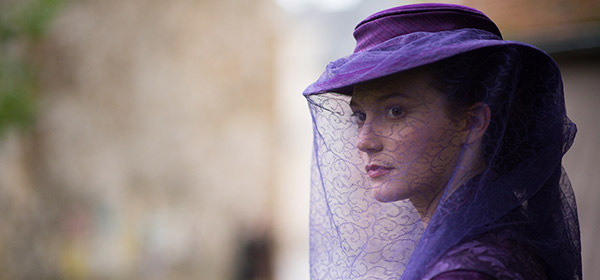The sixth adaptation of Flaubert’s Madame Bovary is beautifully filmed. The director’s impeccable use of locations, sets, lighting and costumes cannot be faulted. The lighting during the first ten minutes of the movie was gently reminiscent of old Flemish paintings. The soundtrack subtly placed the viewer in the appropriate era. The peaceful village scenes and the quiet countryside paved the way for what I hoped would be a relatively interesting tale.
However, for me, that’s where most of the positives ended.
If you’re unfamiliar with the tale of Flaubert’s protagonist, Emma Bovary, who, after spending her childhood in a convent school, is married off by her father to a mild-mannered doctor who works in a quaint country village. Initially, Bovary is excited to begin her new life, but quickly becomes disillusioned with the boredom she feels being a lady in waiting for an average, going-nowhere doctor in a quiet country town. She yearns for the hustle and bustle of Paris or one of the larger European cities.
Emma seeks adulterous affairs with men of higher class in order to escape her boredom and raise her social standing. She initially spurns a young up-and-coming lawyer when he proposes an affair with her, and when he leaves town heartbroken, she realises her missed opportunity. After meeting a Marquis, she enjoys many secret rendezvous with him, but when she proposes that they run away together, only one of them leaves – and it isn’t her.
To compensate for her boredom and her desire to live beyond what has been given her, she opens an account with the local merchant, who provides her with (seemingly) unlimited credit. She decorates her house in the style of the European aristocracy, buys the finest fabrics and most lavish clothing. She incurs a debt she can never repay, and this is the beginning of her demise.
Madame Bovary, as a literary work, has been hailed as one of the top three novels of all time. It’s a shame the movie couldn’t capitalise on the fine reputation of Flaubert’s finest work, because to me it seemed that beautiful sets and scenery was all that this adaptation of had to offer.
The part of Emma Bovary is played by young Australian star Mia Wasikowska, who does an admirable job relaying the frustration, angst and boredom experienced by the young housewife, as was evidenced by the audible moans and gasps of the audience watching the film.
If the aim of the director was for the audience to feel this angst and frustration, then consider the film a raging success.
Apart from the scenery, costumes, sets and lighting – this movie was hard work to watch. In fact, I could almost sum up a review of this film in three words: life’s too short.
Admittedly, I found it tough to sit through the whole film, but I made it through to its conclusion, which ended up being my favourite part of this movie. Not the ending itself, but the chance to leave it all behind me.
Madame Bovary gets 4/10.

